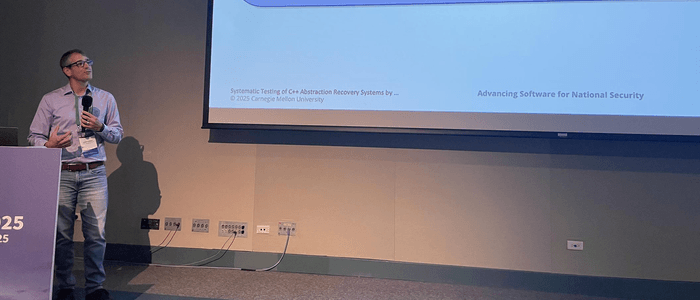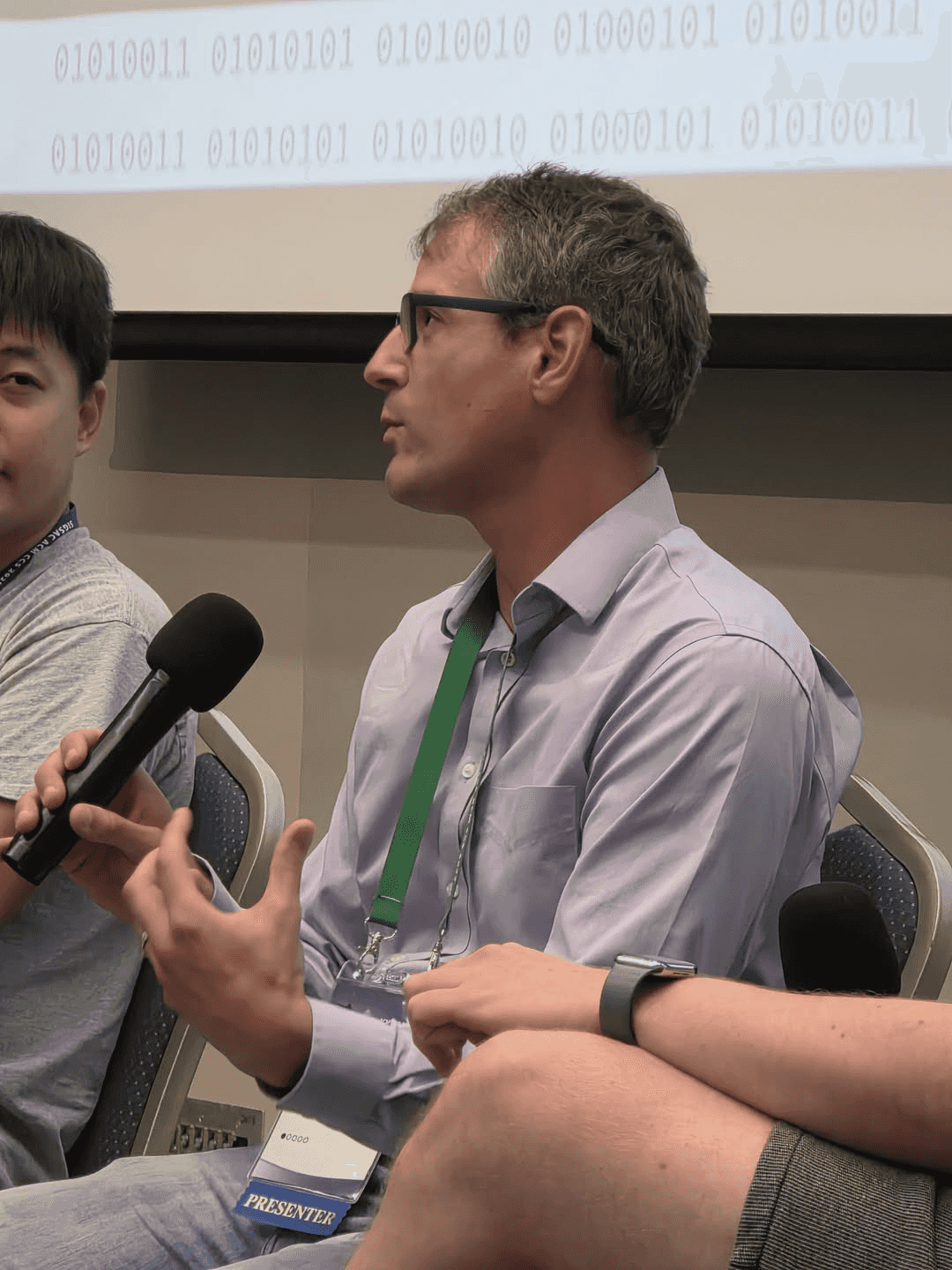
Systematic Testing of C++ Abstraction Recovery Systems by Iterative Compiler Model Refinement
I'm excited to announce that our paper, "Systematic Testing of C++ Abstraction Recovery Systems by Iterative Compiler Model Refinement", has been published at the 2025 Workshop on Software Understanding and Reverse Engineering (SURE)! SURE is a new workshop—more details below.
When I joined SEI, one of my first research projects was improving C++ abstraction recovery from binaries. This work led to the development of OOAnalyzer, a tool that combines practical reverse engineering with academic techniques like a Prolog-based reasoning engine.
Over time, users increasingly adopted OOAnalyze and ran it on video game executables that were much larger and more complex than the malware samples we had originally targeted. Perhaps unsurprisingly, running OOAnalyzer on these larger, more complex binaries often revealed problematic corner cases in OOAnalyzer's rules. As we learned about such problems, we would attempt to improve the rules to handle the new cases. Sometimes this was pretty easy; some of the problems were obvious in hindsight. But not always.
Eventually, I found that some rules were becoming so nuanced and complex that I was having trouble reasoning about them. I realized that I needed a more systematic way to test and refine OOAnalyzer's rules. This realization led to the work presented in this paper.
On one hand, I'm incredibly proud of this paper. To greatly simplify, we developed a way to model check the rules in OOAnalyzer. It's been incredibly effective at finding problems in OOAnalyzer's rules. We found 27 soundness issues in OOAnalyzer, and two in VirtAnalyzer, a competing C++ abstraction recovery system.
Unfortunately, the journey to publication for this paper has been long and bumpy. It is, admittedly, a fairly niche topic. But I also think it has some interesting ideas that could be applied more generally to other reverse engineering systems. In particular, I think that much of what we call "binary analysis" is actually "compiled executable analysis" in disguise. In other words, our binary analyses are often making (substantial!) assumptions about how compilers work, such as the calling conventions that are used, and without these assumptions they do not work. Our paper provides a systematic way to encode and refine these assumptions, and validate whether underlying analyses are correct under the assumptions. My hope is that in future work, we are able to demonstrate how to apply this overall approach to more traditional binary analyses. I personally think that static binary analysis without such reasonable simplifying assumptions is impractical, so we need more techniques like this to help analyze compiled executables.
Although I'm proud of the problems we discovered in OOAnalyzer, I'm also a bit disappointed in the practical impact. My hope was that when we found and fixed soundness problems in OOAnalyzer's rules, it would generally improve the performance of OOAnalyzer on real-world binaries. However, we found that in general this was not true. In fact, in some cases, fixing soundness problems actually made OOAnalyzer perform worse on real-world binaries! I think this highlights that there is a trade-off between soundness and accuracy in binary analysis. In order to be sound, the system can never make mistakes. We may need to make a rule more conservative, even if it almost never poses a problem in practice. However, in order to maximize accuracy, the system must optimize for the most common cases, even if it means that it will occasionally make mistakes.
SURE Workshop
SURE, the Workshop on Software Understanding and Reverse Engineering, is a new workshop colocated with ACM CCS this year. In addition to presenting our paper, I had the honor of participating in a panel on "Modern Software Understanding" alongside Fish Wang and Steffen Enders. The first SURE was a resounding success, and I'm eager to see how it evolves in the coming years!

Powered with by Gatsby 5.0
